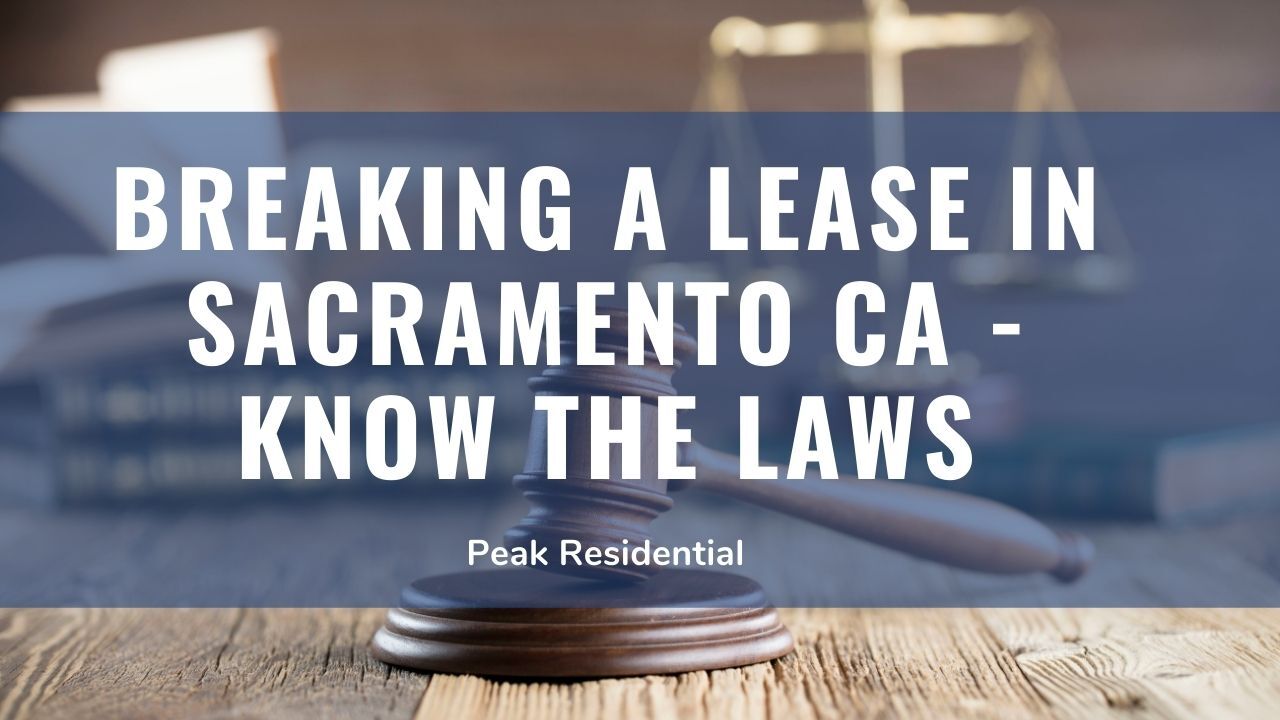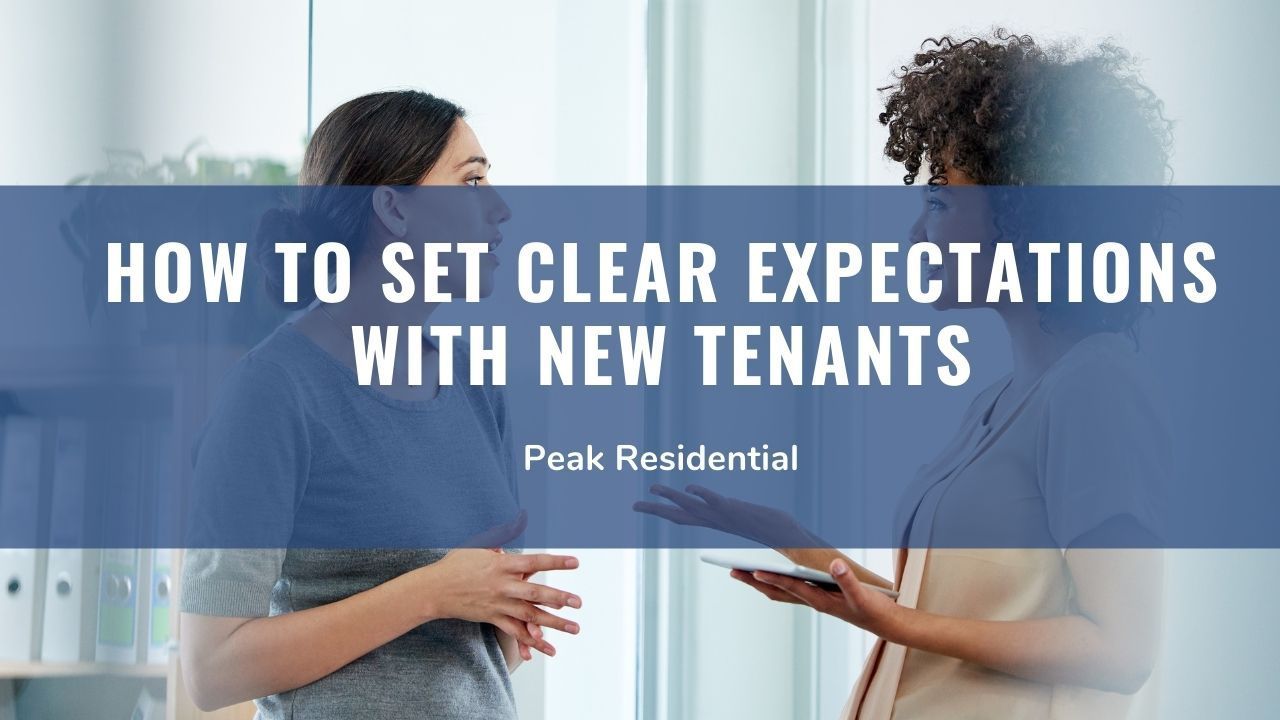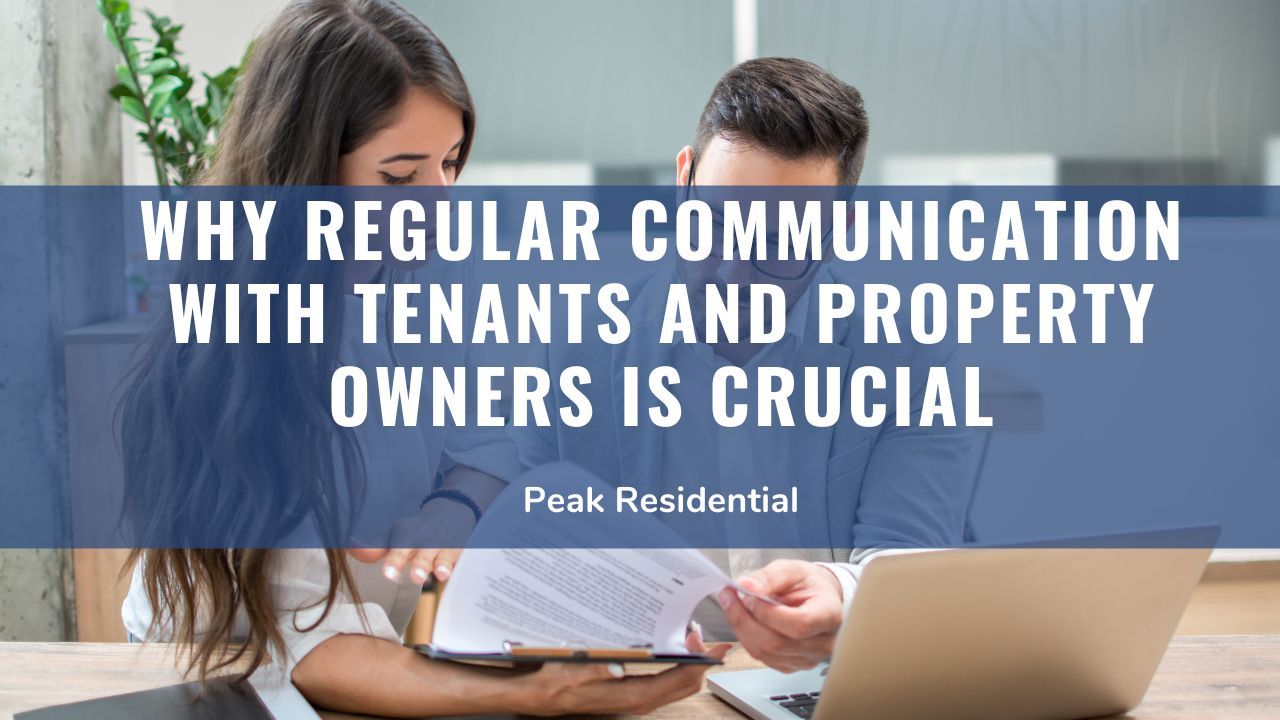Breaking a Lease in Sacramento CA - Know the Laws

Learning that your California tenant looks to break early lease termination can be disheartening. And understandably so, tenant turnover in rental units is a cash flow killer. Even in cases were you can keep the security deposit, the loss can still make a dent in the income of a landlord if they break a lease in California when the entire lease term isn't finished.
That said, new renters will sign a lease if intend to stay in the rental for the entire term of the lease agreement. Life can happen, however, and the tenant may need to move out before the term expires.
The reasons for breaking a lease can be quite varied. They can range from “I lost my job” to “I want to downgrade/upgrade” to “I have received change of station orders.”
Some reasons can be legally justified, while others may not. When legally justified, tenants can break the lease in California without further rent obligation to the rental agreement or landlord. The same cannot, however, be said when it comes to legally unjustified reasons. In the latter case, tenants would still need to pay rent any further rent obligation to the landlord for the remainder of the lease term with notice.
When Breaking a Lease is Legally Justified in California
Normally, a lease in California obligates the tenants to leave no unpaid rent for the full lease term – usually one year – whether or not they continue living on the rental, unless they are evicted. There is some legal justification to breaking a lease in California early, though. An early termination is justified in situations as follows:
1. The Lease Contains an Early Termination Clause
Nowadays, more and more landlords are including to terminate early clause in their lease agreements to add a legal justification to breaking a lease before the lease terminates. In exchange to pay a penalty fee is described in the lease, a landlord can include specific terms of the early lease termination that would allow a tenant to terminate the tenancy, which is acceptable under law. This can cause much less conflict between the landlord and their renters with rent payments. The landlord can avoid paying for a potential legal battle for their owed rent.
Generally, landlords charge a fee that is usually the equivalent of 2 months’ rent in the fixed term lease. This will be a decent blanket coverage when between having tenants rent the rental. It’d also be in the landlord's best interest to require the tenant to provide them ample written notice, usually 30 days, to enable the landlord to find a new tenant for the rental unit.
2. The Tenant is a Service Member
Active service members who have been relocated or received permanent change of station are protected by the Servicemembers Civil Relief Act (SCRA). The protection starts from the day the member enters active military service and ends 30 to 90 days after they are discharged. As such, they do not have to stay for the entire lease term in California and paying rent, and the landlord will have to find a new tenant to lease the rental.
According to the Act, only members of the “uniformed services” are protected when it comes to breaking a lease. They include members of the:
- Activated National Guard
- Commissioned corps of the Public Health Service
- Commissioned corps of the national Oceanic and Atmospheric Administration
- Armed forces
During a tenancy a tenant must meet certain requirements, including giving the landlord written notice, prior to breaking the lease early in accordance with this Act. They must:
- Show proof that they signed the California lease agreement before entering active military service
- Show proof that they intend to remain on active duty for at least the next ninety days
- Provide you a written notice accompanied by a copy from the commanding officer authorizing the deployment
Once these requirements have been met, the fixed term lease expires 30 days after the next rent period begins. Again, they do not have to pay the landlord for the remaining rent, and new, prospective tenants must be found. Depending on the local laws, you may still need to deal with the security deposit as well.
3. The Rental Unit Violates the State’s Health and Safety Codes
Under California law, landlords must provide habitable rental premises. That is, a property that meets the state and local housing codes. If the California landlord fails to do so, a court would probably rule that they have “constructively evicted” their tenant and they can break a lease and doesn't need to pay rent. The landlord would have broken the terms of the rental agreement themselves.
Consequently, the renter would have no further responsibility under the lease in California. They can break an apartment lease or any other property lease without repercussions.
For this reason, it’s important for a landlord to maintain their properties to habitable standards, and normal wear and tear cannot be deducted from the security deposit. Among other things, respond to tenant maintenance issues promptly and regularly inspect the unit.
Generally speaking, a habitable rental property is one that meets the following standards. They have:
- Effective weather protection
- Plumbing or gas facilities that are to legal standards
- Properly maintained stairways, floors and railings
- Sufficient garbage receptacles
- Clean and sanitary building, grounds and appurtenances at the time the rental lease commences
- Electrical wiring and electrical equipment that are to California legal standards
Should a landlord leave any of the above unresolve, a tenant could consider themselves constructively evicted.
4. You Are Harassing the Tenant or Violating Their Privacy Rights
All tenants in the U.S. have a right to quiet enjoyment of their properties. Barging in unannounced, or doing things like turning off your utilities or removing doors or windows can amount to landlord harassment. When a landlord repeatedly violates this right, the law will swing in the favor of the tenants rather than the landlord. It will be hard for the landlord to mitigate damages. Tenant can break rental agreements for this violation.
Under California law, the landlord must provide their renter with 24 hours’ written notice before accessing their rented rental unit. (Cal. Civ. Code § 1954). Anything else would constitute landlord harassment and could leave you vulnerable to a temporary restraining order.
5. Your Tenant is a Victim of Domestic Violence
Domestic violence victims have special rental provisions. California tenants who are victims of stalking, sexual violence or domestic violence can terminate rental agreements early under the California landlord-tenant law (Cal. Civ. Code § 1946.7).
Landlords are entitled to verify any claims of domestic violence. A landlord can do so by requiring the tenant to provide a copy of the police report notice, the emergency protective order or the restraining order.
When Breaking a Lease is Legally Unjustified in California
Some reasons are generally not enough justification for the tenant to legally terminate their California lease early. These reasons include:
- The tenant is moving to the new home they bought
- The tenant is looking to upgrade or downgrade
- Tenant is moving in with their significant other
- The tenant is moving closer to family
- The tenant is relocating for a new job or school
In such cases, the tenant would still be bound by the terms of the month to month lease agreement under California rental law. This includes continuing to pay rent for the remaining duration of the lease agreement–whether they live on the unit or not until the lease term expires. In such a case you may be able to leverage the security deposit to cover any costs with proper notice as communication.
Landlord’s Responsibility to Find a Replacement Tenant
States have different rules in regards to re-renting a unit after a renter breaks their lease with or without notice. In California, landlords are required to take any reasonable steps to show their unit to prospective tenants after the former tenant leaves.
As such, if a landlord finds a replacement new tenant to take up tenancy, then the previous tenant will only nee to cover unpaid rent for the duration the unit was vacant.
As per California law (Cal. Civ. Code § 1951.2), landlords have a duty to make reasonable attempts to re-rent their unit. If successful, the landlord must credit the rent received to the debt of the previous tenant.
Bottom Line
Breaking a month to month lease in California involves many legal nuances, as do many areas of California's landlord-tenant law. It’s vital to know what your rights are as prospective landlords, when you run into this issue. That way, you’ll avoid unnecessary legal costs notice or complications.
Do you still have some questions regarding a security deposit, lease agreement or anything else that would require the expert help of one of the great property management companies? If so, Peak Residential can help. We’ve been helping homeowners with their property management needs since 1982.
Disclaimer: This blog shouldn’t constitute legal advice. Laws change frequently, and this post might not be up-to-date then. For further questions, please get in touch with us or a qualified attorney.



















